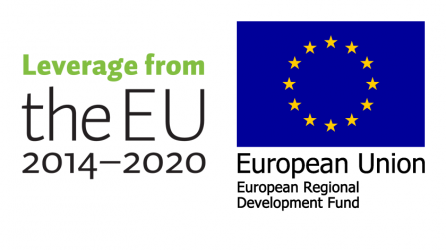The current state of the food system has in part resulted into the climate and ecological crisis at hand. Food system accounts for 29% of global GHGs and significant alteration of 75% of the earth’s land area. Productivity of farm soils due to nutrient loss is evaluated to have decreased by 23% globally. Emphasizing the dangers of this trajectory, UN projects a need of 70% increase in the food demand for the world’s growing and urbanizing population by 2050.
Among other things, new technological solutions play a vital role in amending the critical situation and ensuring adequate food production for feeding future generations. One such technology is genome editing (GE), and the breakthrough methods, such as CRISPR/Cas and ODM. These techniques have the potential to breed crops with improved resistance to drought and diseases as well as more nutritional crops, such as the golden rice, supplementing intake of vitamin A, which is crucial in fighting undernourishment in developing countries. Overall, gene-editing proposes new opportunities in cultivating novel added value features into food crops and mitigating harmful features inhibiting usage.
Compared to previous traditional and GM methods, the new techniques are more efficient and grant a greater scope for genetic change, making them both a cause for a big hype as well as fearmongering. While their economic benefits are obvious, their risks include so called off-target effects, where gene edits could possibly take place in unintended locations and cause unexpected and unwanted effects. On top of safety issues, problems related to access may arise later as some companies have now patented varieties based on improved traits achieved with superior methods, such as the marker-assisted selection (MAS), based on DNA and genome knowledge, though still applied through traditional breeding.
The current EU regulation requires an extensive and costly risk analysis to be done for each GM variant before entering the market. Certain mutation breeding techniques, such as mutagenesis based on chemicals or radiation, are allowed as they have a long history of usage dating back to the 20’s and the 30’s. Right now around 70 authorised GM food and animal feed products come into the EU.
As with new technologies always, there is a fierce competition going on among scientists and companies regarding the development of GE methods and their applications. In Europe, many instances now fear the continent will lag behind and loose competitive advantage and innovative solutions within plant breeding, as the regulation governing the new GE methods differs significantly in the EU in comparison to for example US, China, Japan and Argentina. The most pressing issue is the classification of the new GE methods. US regulation parallels them with traditional plant breeding while EU classed GE crops as GMOs in a ruling given out in 2018. Research on GM and GE is allowed in the EU, as long as contamination in the outside environment is not a risk. Nonetheless, in practice both research and application development in Europe are standing still. Safety is the reason for having effective regulation, however, most scientist in Europe consider the current legislation treating the GE methods too rigidly considering the risks and benefits at stake.
The genome editing technologies may well play a crucial role in feeding hungry people in the next decades, when climate change and population growth demand new solutions in food production. Efforts are currently made in order to change the current EU legislation and ensure that also European companies and researchers will stay at the forefront of modern plant breeding. Consumer attitudes play an important role in how the GE techniques are perceived in general and what kind of decisions politicians and regulators are willing to make concerning their fate. While it is easy to play the NO GMO card in grocery marketing today, it is difficult to build the understanding and trust most likely needed for safely produced GMOs in the future.
Information is the best antidote for misconceptions and wrong judgements. Food Tech Platform Finland will organize an event “Gene-editing’s and GMO’s role in the future food” on the 7th of April 2020. Come and hear out the fresh news about GE techniques, their risks and opportunities in food production and the latest developments concerning legislation.
Welcome!
Laura Forsman, Program Leader
Food Tech Platform Finland

